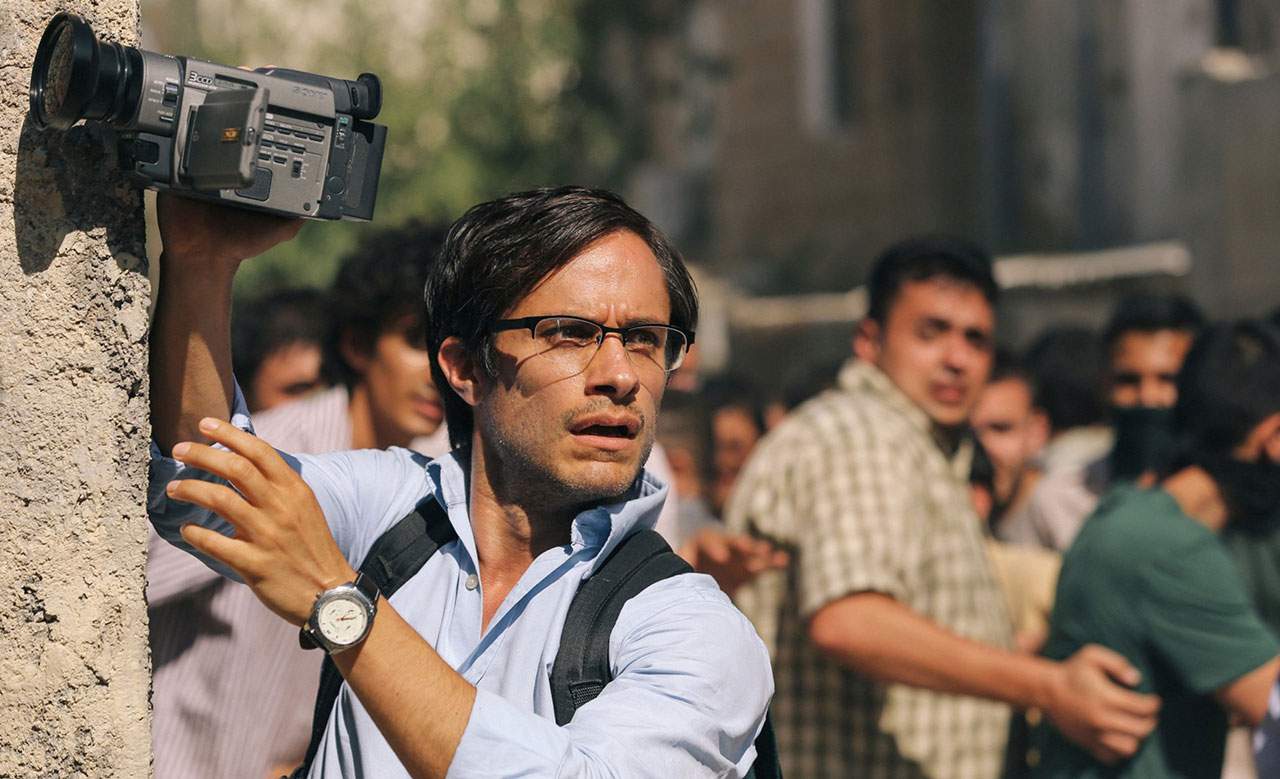Rosewater
Aside from being excellent, Jon Stewart's directorial debut is not what you expect.
Overview
Over his 17-year tenure as the host of The Daily Show, Jon Stewart has become known as one of America’s shrewdest political commentators. From behind his fake news desk, armed with a mix of satire and editorial scorn, the comedian and his team of writers have exposed hypocrisy and corruption, ridiculing dictators, presidents and CEOs alike.
You’d imagine, then, that his first foray into filmmaking would be a similarly tongue-in-cheek affair — full of all the snark and cynicism that his viewers have come to expect. Instead, Stewart plays it straight, and in doing so reveals a side of himself that audiences rarely get to see. A powerful true tale told with grace and endless compassion, Rosewater is an outstanding directorial debut.
Gael Garcia Bernal plays Maziar Bahari, a Canadian-Iranian journalist detained by Iran’s security forces amid the widespread civil unrest following the country’s 2009 elections. Held for more than four months, Bahari was accused of being an American spy, in part because of a satirical interview he gave on Stewart’s program just a week before his arrest.
“Why would a spy have a TV show?” the baffled journalist asks, a question that perfectly encapsulates the absurdity of his situation. For weeks on end, Bahari is beaten and berated, unable to provide the answers that his captors wish to hear. In his moments alone, his memories turn to the plights of his father and sister, both of whom were imprisoned under previous Iranian regimes.
Garcia Bernal gives a first-rate performance as Bahari, a man out of his element who discovers a remarkable inner strength. But the standout of the film is Danish actor Kim Bodnia, who plays Bahari’s nameless interrogator. While the man’s actions are often appalling, he’s never depicted as anything less than human. Like Bahari, he’s a person trapped by circumstances; a working stiff with a boss to answer to and a wife who wishes he was home.
In humanising Bahari’s captors, Stewart helps us to understand them. The cruelty and stubbornness of those who propagate oppression is not born out of inherent evil, but rather out of fear. Fear of weakness. Fear of change. As the movie progresses, we increasingly come to pity these men, whose desperate attempts to cling to an old way of life seem all but destined to fail.





